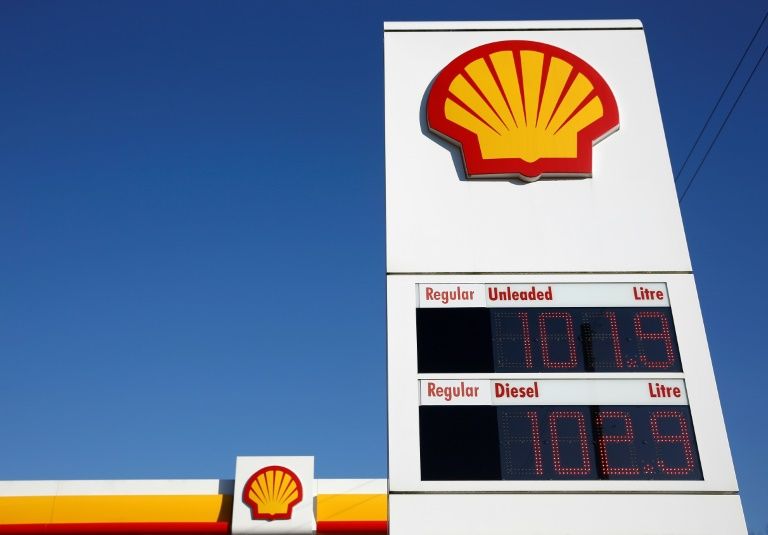Dutch court orders Shell to pay Nigerian farmers for oil spills
The farmers first sued Shell in 2008 over pollution in their villages in southeastern Nigeria
. ©AFP/File ADRIAN DENNIS
The Hague (AFP) – A Dutch court on Friday ordered Shell to pay compensation in a long-running case brought by four Nigerian farmers who accuse the oil giant of causing widespread pollution.
After 13 years of legal battles, an appeals court in The Hague ruled that Shell’s Nigerian branch must pay out for oil spills on land in two villages.
It also held the Anglo-Dutch parent company, Royal Dutch Shell, liable for installing new pipeline equipment to prevent further devastating spills in the Niger Delta region.
“The court ruled that Shell Nigeria is liable for the damage caused by the spills. Shell Nigeria is sentenced to compensate farmers for damages,” judge Sierd Schaafsma said.
The amount of damages would be determined later, the court said. It did not specify how many of the four farmers would receive compensation.
The case — backed by the Netherlands arm of environment group Friends of the Earth — has dragged on so long that two of the Nigerian farmers have died since it was first filed.
“Tears of joy here. After 13 years, we’ve won,” Friends of the Earth tweeted.
Shell Nigeria said it was “disappointed” by the verdict.
– ‘Environmental damage’ –
The farmers first sued Shell over pollution in their villages Goi, Oruma and Ikot Ada Udo, in southeastern Nigeria in 2008.
A lower court in the Netherlands found in 2013 that Shell should pay compensation for one leak but that Shell’s parent company could not be held liable in a Dutch court for the actions of its Nigerian subsidiary.
But in 2015 the Hague appeals court ruled that Dutch courts did indeed have jurisdiction in the case.
On Friday, the court ruled that Shell Nigeria must pay compensation for the leaks at Goi and Oruma.
“In the Uruma cases, Shell Nigeria and… Royal Dutch Shell are ordered to equip the pipeline with a leak detection system so that environmental damage can be limited in the future,” the court said.
Shell Nigeria should have shut down oil supplies on the day of the spill in the cases in Goi, it said.
The court said it needed more time to resolve the case of Ikot Ada Udo, saying that the leak was due to sabotage but it was not clear whether Shell could still be held liable for it, and for cleaning up.
At a hearing last year lawyers for the farmers showed gushing and burning oil spills as well as villagers dragging their hands through water sources, their hands streaked with the substance afterwards.
– ‘Years of devastation’ –
“We are happy about the ruling. It shows that our people can get justice for the years of devastation of our environment by Shell,” King Emere Godwin Bebe Okpabi, ruler of the Ogale Community in the Niger Delta, told AFP.
“It’s a great relief for the people of the Niger Delta that Shell has been made accountable for its injustice against the oil-producing communities.”
Shell has always blamed all of the spills on sabotage and said it has cleaned up with due care where pollution has occurred.
“We continue to believe that the spills in Oruma and Goi were the result of sabotage,” Shell in Nigeria said in a statement.
“We are therefore disappointed that this court has made a different finding on the cause of these spills and in its finding that SPDC (Shell Nigeria) is liable.”
Nigeria was the world’s ninth-largest oil producer in 2018, pumping out volumes valued at some $43.6 billion (37 billion euros), or 3.8 percent of total global production.
In a separate case in the Netherlands, the widows of four Nigerian activists executed by the military regime in the 1990s have accused Shell of complicity in their deaths.
Shell also faces a landmark legal bid to force it to meet emissions targets in the Paris climate accords, brought by several environmental groups in the Netherlands led by Friends of the Earth in 2019.
Disclaimer: Validity of the above story is for 7 Days from original date of publishing. Source: AFP.


